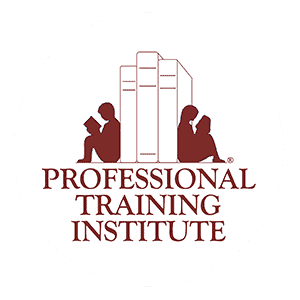
When your child has a disability, all of the additional responsibilities required can be overwhelming. The amount of documents your child accumulates is massive, and it can be easy to just put the progress reports, testing, and IEPs aside and focus on the present; but organizing those documents and looking back is essential to ensuring your child’s IEP is effective.
The first step in getting organized is making sure you have all the documents you need. Your file should include IEPs (both draft and final with all signatures), progress reports, evaluations, any communication between you and the school, and work samples. If you do not have all of your child’s paperwork, you can get records from your school system by sending a letter requesting a full copy of your child’s file. MA regulation 603 CMR 23.07(2) states: “Upon request, copies of any information contained in the student record shall be furnished to the eligible student or the parent. Access shall be provided as soon as practicable and within ten days after the initial request.” Be sure to keep a copy of your letter for your file!
Having an organized master file will give you a chance to read your child’s records like a story. In order for you to be an active participant in your child’s IEP meeting, it is important for you to review the prior year’s IEP, compare the progress reports to see if your child is advancing as expected, chart test scores from prior testing, and review work samples. The best way to do this is to create organized binders with a detailed table of contents, as well as spreadsheets and graphs of your child’s progress to use at your next IEP meeting. These tools can ensure that the IEP team has a meaningful discussion about progress based on the data from the past year and beyond.
Should you go digital? Having a digital file of your child’s records can ease the burden of keeping track of documents and allow you to access records from anywhere. It can also be a lifesaver if disaster ever strikes your home. Once records are scanned, they can be uploaded to a cloud (Google, Dropbox, etc). Wouldn’t it be great to be in a doctor’s or therapist’s office and be able to email them the documents they request right from your phone instead of going home and searching through all your paperwork? When scanning documents, make them searchable so if you need to find all the documents that mention “speech,” you can just put in that keyword.
Once you have taken these steps, it is important to go beyond organization and to chart and graph the evidence you have in the file. Charting past progress reports against IEP goals can show you in one visual your child’s rate of progress, and can be a powerful handout at your next IEP meeting. Progress reports can also be a good visual of regression, and thus a piece of evidence you can use to make the case for Extended School Year services. By completing this task, many parents have realized their IEP teams have moved on to new goals when their child never met prior goals. In addition, as IEP teams change, past goals can be repeated without team members realizing the goal had been used in prior IEPs, resulting in a child working on a particular goal for two cycles without any change in the way that goal is being taught. Charting and graphing progress can help to avoid situations such as this, as well.
Every child is evaluated by the school district at least every three years, and many parents seek independent evaluations outside of school. Once these evaluations and recommendations are reviewed by the team, they are rarely ever discussed again. Graphing past test results can visually show your team if your child is making progress or falling further behind. Many parents also feel a visual representation of evaluation test results is easier to understand, and can help to build team consensus. Undertaking these efforts can be emotionally draining, as reviewing the documents often brings back strong memories of experiences that were less than pleasant. It can also cause some parents a great deal of anxiety, as the road to secure a free and appropriate public education often still lies ahead. These emotions can be overwhelming and derail the best of intentions. This is where the services of someone such as myself can help, as the skill and expertise required to undertake these efforts are not interwoven with the emotions of motherhood, fatherhood, or guardianship.
Want to learn more about organizing your child’s powerful paperwork? Join us for Jennifer’s workshop on Taking Your Paperwork from Mess to Success at our Needham Learning Center on Thursday, April 14, from 7-9pm.
Jennifer Bolduc is a special education parent and advocate. As The Special Organizer, she helps parents across the country get and stay organized.










Jaydin Skinner says: